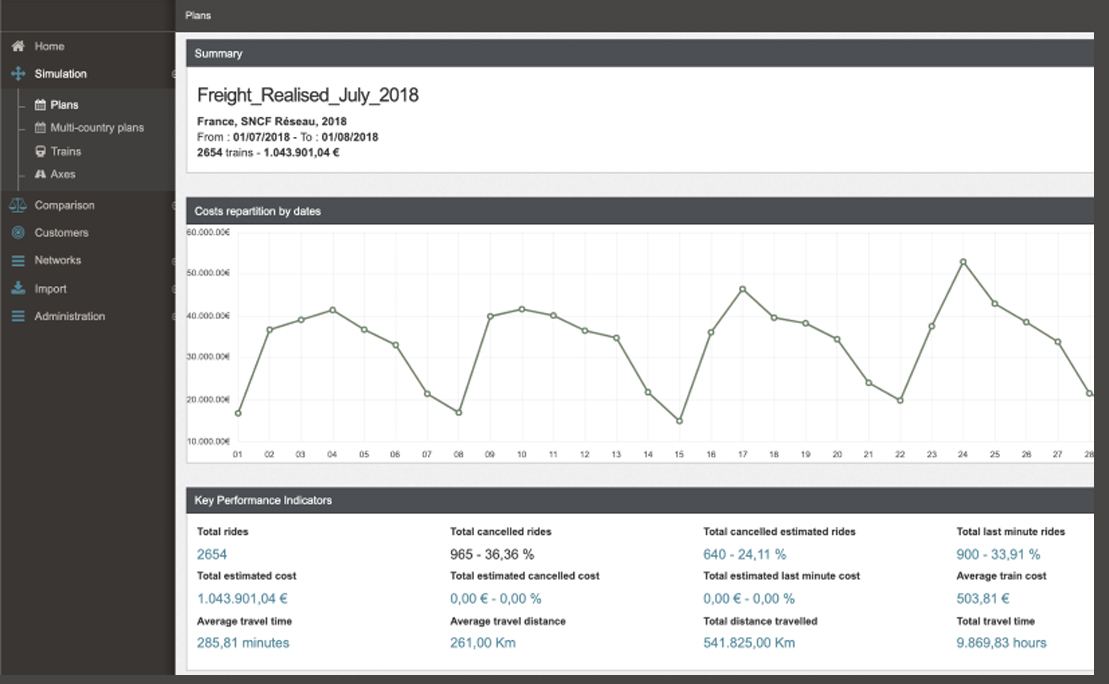Application support outsourcing
Job challenge
What comes after digital transformation ?
The phases of change initiated by the installation of computer tools to aid in digitalization cannot stop after deployment. An information system must evolve and be regularly updated, be it through corrective or evolutive maintenance, both technical and functional. Following the application's existence, ensuring its correct functioning, its proper integration and communication with other systems, controlling databases, adapting the input/output formats, improving and enriching interface and functionalities; or at the very least proceeding with security updates. A long list of actions that require constant attention to ensure efficiency.
Multiply this monitoring by the number of applications and/or handlers that participated in developing your applications, subtract those with whom you no longer wish to work or who cannot provide the resources you need when you need them, and you get the dilemma of squaring the circle. Whom to call for which emergency ? Who to entrust with this minor evolution? Which handler to call upon for deliverables quality control ?
Itersys solution
Itersys accompanies you in managing your applications base
Unifying the management of a company's applications network, regardless of differences in the technologies used (language, hosting…), enables great economies of scale, a gain in service quality with individual contacts, unified processes, a controlled methodology and the flexibility of a tailored service to deal with the expectations of your businesses, from corrective maintenance support to database monitoring on a 24/7 basis.
One contract to rule them all
Itersys offers a single contract for the maintenance and upgrades of your applications base. Entirely customizable to answer your business needs, this contract you access to a lot of tailored services:
- A dedicated team drafted according to your needs (management, analysis/development, testing, release) or a shared “on demande” ticketing service for spontaneous requests.
- Business processes (Agile/Scrum/Prince2), an expert IT technical team and consultants to aid in all your projects.
- The benefits of a heterogenous technical environment standardization thanks to our technical advice: technical review of applications, code and infrastructure optimization recommendations, automated tests set-up, release management, quality control on all deliveries, planification and follow-up of sprints by lot through ticketing and project management tools, regular meetings regarding status, activity reports and performance. Discover our solutions on our website.
Discover our solutions on our website.
Practical cases
A major customer in the transportation sector started a digitalization plan for its services, with the aim of wrapping the procedure up by 2020. This huge job reached across all departments that were behind in digitalization and/or worked with isolated data systems. In under five years, the newly-created IT department was tasked with reviewing all existing systems and put in place a complete system connexion strategy, often entail a complete rethinking of existing tools when they were not to be developed from scratch. Mecanically speaking, the urgency and project load required the contribution of many providers. As this project is nearing its end and many systems are finally reaching their warranty period, the question of maintenance and its modalities naturally came up.
Itersys suggested the implementation of a customized contract to answer this very specific need: a team of technical experts for the maintenance of several apps coded in C#, Java and PHP by various different handlers. Development methodology, code quality and limited – sometimes even absent – handovers were the initial challenges standing in this task's way. Itersys started off with a reconnaissance step. It learned about the various projects it had to work with: gathering all accesses in a centralized hub, reviewing the code involved and researching all available documentation. For each app, a complete review of the application stack enabled us to create standards of reference that include technical, functional and hosting-relating documentation, alongside the deployment guide and technical evolution recommendations based on criticality degree (security breach resolution, database management, code and framework update…). The first maintenance interventions allowed us to get more familiar with the emergency procedures and draft critical points of reference before offering secondary optimizations such as the implementation of automated tests on the apps' critical functionalities.
For the customer, the benefits of resource sharing for a complex application base are numerous: with a single handler for all apps, communication is made simpler; assets are deployable on demand for application support and the supervision of new evolutive projects; minor apps (low-maintenance and traffic) are woven into the contract and enjoy the same level of attention and quality usually reserved for more critical assets; regularly-provided reports simplify the overall process of maintenance-generated load evaluation; finally, a SPOC centralizes management and technical communication.
More information on this project
Contact our commercial department to organize a demo of our solutions !



